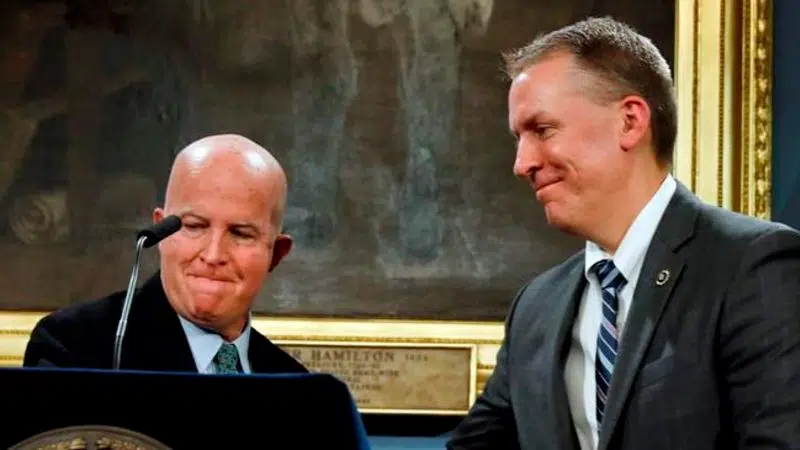
NYPD commissioner’s exit: ‘Right time’ after tense summer
New York City’s police commissioner, who has found himself caught at times between loyalty to his officers and demands from the public and politicians for greater police accountability, announced Monday that he is retiring.
James O’Neill said he will leave for a private sector job in December, a little more than three years after he took charge of the nation’s largest police department. Chief of Detectives Dermot Shea will succeed him, Mayor Bill de Blasio said.
O’Neill led the police department’s move away from controversial “broken windows” policies, guided its response to pipe bomb blasts and a deadly truck attack, and has overseen continuing drops in crime. He called leading the NYPD “the best job in the world.”
But over the last few months, the career policeman has been increasingly under fire amid a tug-of-war between reform advocates and police unions over discipline, transparency and the level of support he’s shown for officers walking the beat.


